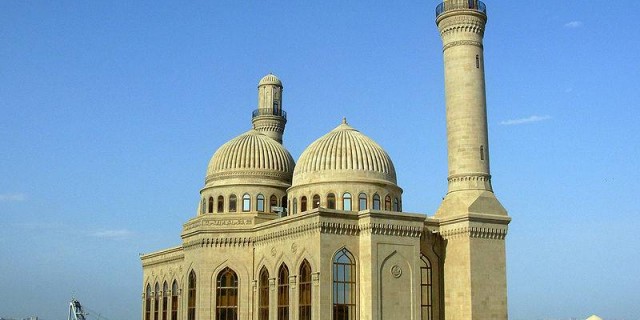Holding presidential elections in Afghanistan and its results plays a significant role in the fate of AfghansThe republic of Azerbaijan is the largest country in the Caucasus region located at the crossroads of western Asia and Eastern Europe. The shoreline of Caspian Sea forms Azerbaijan eastern boundary. Azerbaijan gained independence from the Soviet Union by the dissolution of the Soviet Union in 1991. The population of Azerbaijan is about 9.1 Million people that identifies as Muslim of whom most are Shiite. Political system of the Azerbaijan is based on parliamentary multi-party system of republic and a parliament called Milli Majlis . Azerbaijan has gained membership of the Council of Europe since 2001.
Azerbaijani Muslims' intense interests to original Islam, their observable interests to the western countries' values particularly after gaining independence from the Soviet Union, and geopolitical situation of Azerbaijan have provided opportunities for the international and regional powers to interfere in internal affairs of Azerbaijan.
The overlapping strategies of international players on the aforementioned three characteristics of the republic of Azerbaijan have made Baku, the capital of Azerbaijan, a good place for disputes and challenges of international powers and internal political power flows. Azerbaijan's neighborhood with Iran that is considered the propagator of true Islam in this region, the touchable unwillingness of Azerbaijani government to Russian federation, and its sensitive geopolitical position have made this country a place for disputes and challenges of some countries and organizations. To this end, western countries, United States as their leader, Turkey, Zionist regime and Saudi Arabia have done their best to act extensively inside Azerbaijan. Because of the number of Muslims in this republic country, they aim at preventing Azerbaijanis' tendency to the true political Islam.
Nowadays, there are four following thought flows in Azerbaijan:
1. Secular and non-political Islam supported by Azerbaijan government.
2. True political Islam
3. Nurculars
4. Wahhabism
Accordingly, Nurculars and Wahhabis play a significant role in political, social, and even economic issues of Azerbaijan. Wahhabism in Azerbaijan is funded and supported by Saudi Arabia & Persian Gulf Arabic countries. In addition, Turkey supports Nurculars as the propagator of Islam in Turkish style. Azerbaijani Wahhabis' main objective is to keep away Azerbaijani Shiites from the true values of political Islam. This is a policy followed by Saudis in world of Islam. However, Turkey supports Nurculars as the propagator of Islam in Turkish style that is a secular Islam. This kind of Islam prefers Individualism than Collectivism.
The government in Azerbaijan has not had any sensitivity to the activities by Wahhabis and Nurculars and has not established their dominance over Azerbaijanis. The government has utilized the two groups as apparatus for controlling Azerbaijani Shiites' move toward true Islam. In this regard, the government of Azerbaijan like United States and Zionist regime has followed the same policy over these two groups. It is noteworthy that United States and Zionist regime are the main propagators of secular Islam in this country.
Due to the seventy-year gap between the first independence of Azerbaijan in 1918 and its second independence in 1991, the republic of Azerbaijan whose population is mostly Muslims, has eagerly moved toward the true values of political Islam. It is noteworthy that Azerbaijan did approach to political Islam by Bolshevists in 1918.
The republic of Azerbaijan is a government that is directed by the powers that are the main enemies of Islam. Accordingly, West Block is trying to hold Azerbaijan away from the true values of political Islam. Western countries and United States & Zionist regime as their leaders along with Wahabis in Azerbaijan have kicked off their wide range of political, security and economic activities in Azerbaijan.
United States and Zionist regime have the same objectives in Baku. They have tried to provide their political and economic interests against Russia and Islamic Republic of Iran as the propagator of true values of non-secular Islam by the recent changes in Azerbaijan. They are trying to challenge and control the powers of Russia and Iran in international relations according to their policy in Azerbaijan. In addition, United States and Zionist regime are trying to strengthen secular Islam in Azerbaijani government in the coming years. In addition, Iranophobia and the management of Azerbaijani government in disputes between Shiites and Wahhabis are among their other objectives in Baku. It can be concluded that the government of Azerbaijan is an apparatus for fulfilling the objectives of US, Zionist Regime, Al-Saud, and Turkey inside and outside of Azerbijan.



























